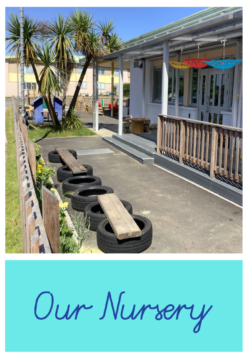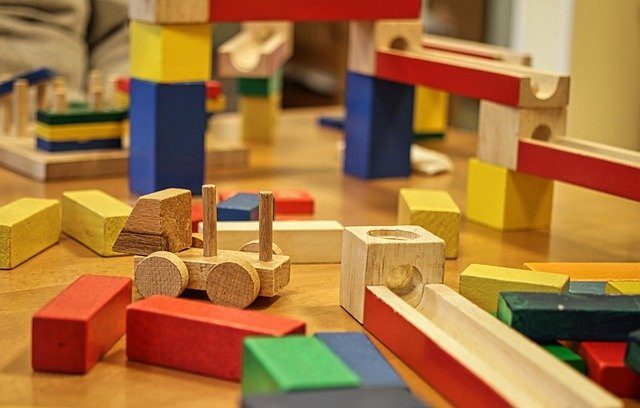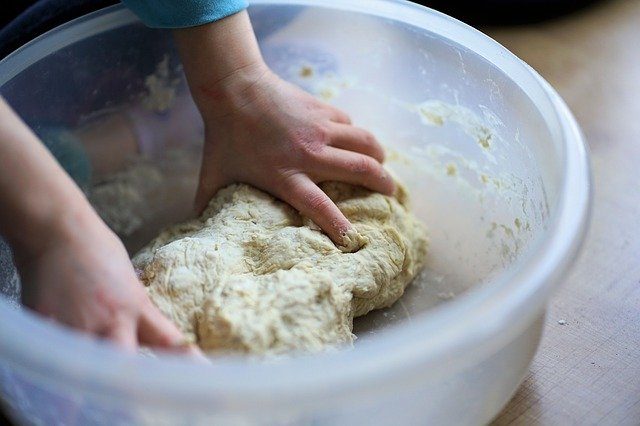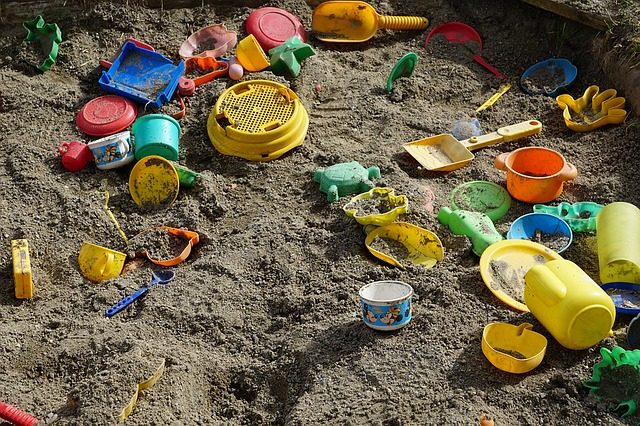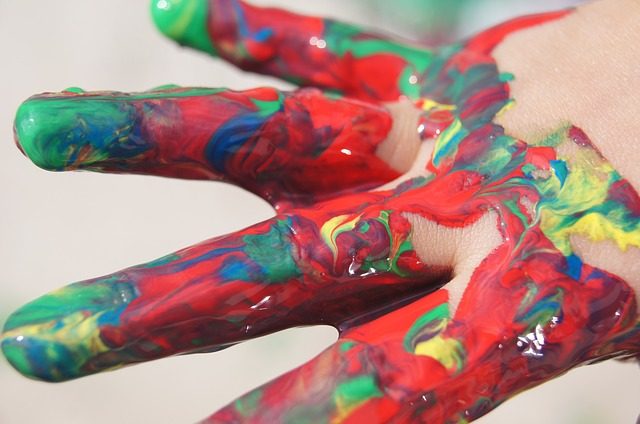Please click on the link to view the suggested PDF files that provide further information with regards to Early Learning and Childcare.
Author: Kelly Anne Haubrick
Play and Learning
“Play is the highest level of child development. It is the spontaneous expression of thought and feeling -an expression which his inner life requires… it promotes enjoyment, satisfaction, serenity, and constitutes the source of all that can benefit the child… At his stage, play is never trivial; it is serious and deeply significant” (Froebel in Lilley 1976).
Froebelian Approach
Over the last 12 months, we have been developing “Froebelian” approaches across the centre. Friedrich Froebel (1782-1852) was a German Educator, an early pioneer of early childhood education and care, and founder of the first “Kindergarten” (now commonly referred to as Nursery Garden). Froebel viewed play and rich, first-hand experiences as being central to children’s learning and development arguing that young children “learn best through self-activity, talk and play” (Tovey, 2017).
Benefits of Play
There are a vast amount of benefits to play and exploration. It is highly documented just how important it is to the growth, development and overall well-being of all children. That is why it is of great importance to us to ensure that we offer the greatest opportunities for children to engage in play.
The Environment
We provide a stimulating environment with a variety of activities and resources available to children to ensure that they are getting the best out of their early learning and childcare experience.
Loose Parts Play
These are materials which have no directions or instructions, allowing children to test out their own ideas, giving them control over their own self-directed activity. Loose parts play inspires curiosity and creativity, providing a wealth of opportunities for children to use their own imaginations.
Block Play
Blocks are another open-ended resource which provide children the freedom to explore. It is accessible to children of all ages and stages of development. Playing with blocks in the early years enables children to develop skills that support later learning in science, technology, engineering and mathematics.
Early Cooking Skills
The process of cooking offers a wealth of learning opportunities for children. With guided support, they are learning about tools and utensils, weight and measure. Using the sequencing recipe books supports their early literacy skills. Children are developing their fine motor skills as they work through the stages of the baking process. This experience is also providing children with skills they will use throughout life.
Sensory Play
There are many options for sensory play where children can use their senses to explore. We carry through a range of arts and crafts activities such as painting, gluing and drawing, as well as sensory play and exploration with pasta, rice, oats, gloop, playdough, water, sand, etc. With indoor planting of tomatoes and herbs, we use tools as well as our hands, our sense of smell and taste.
What to Wear
Learning can be messy… Sometimes children will get paint, glitter, water, mud, etc on their clothes so plenty of spare changes are advisable.
Childcare Centre Information
Outdoor Experiences
“All the best apparatus is in the garden. The two year old works hard. He and she have so much to learn. It is hard to stop him” (Macmillan, 1923).
Benefits to Outdoor Play
We know being outdoors is beneficial to everyone’s general wellbeing. For children, their capacity to learn and develop is greatly enhanced. Their confidence increases as does their concentration, listening and language skills and attention to tasks. Like Froebel, we believe children should have direct, everyday experiences outdoors, in places they can play, explore and manage risk, make choices and develop their physical skills. Experiencing the natural environment also helps children appreciate its wonders and learn to care for and respect living things.

The Nursery Garden
We are our now settled in our new premises and we are very fortunate to have our own dedicated outdoor space that our playrooms open out directly into. We have a great focus on developing our outdoor space so we have lots of ideas and plans for exciting new projects ahead. At the moment, we enjoy using the tarmac for our wheeled toys, we have a climbing frame, and balance beams and a fantastic decking area for picnics and play. We encourage lots of free flow play with toys and activities that we use inside, taken outside, (and vice versa) e.g. sensory trays, small world toys, and block play. There is a mud kitchen being built for us at the moment and we can’t wait to add lots of other interesting and creative areas and resources. The children can also experience nature first-hand through the growing and caring for our flower pots and filling up our bird feeder.

Daily Toddle and the Daily Mile
Our daily toddle enables our youngest children to actively explore their wider community. It also helps to build their stamina and gives them an early understanding of safety rules. For our older children, we are taking part in the “Daily Mile” initiative where we aim to go for at least a one mile walk every day in our local community. This increases children’s capacity to learn and develop, increases confidence and builds stamina for longer walks and adventures.
Local Community
It is important to us to be involved with, and to participate in events within our local community. Previously, we were doing our snack shopping, visiting local shops, going to have a look around the Lewis Castle and museum, and also taking part in library “Bookbugs” and An Lanntair events. We participate in other local events, for example, the tree planting tribute for the 100th anniversary Iolaire memorial, as well as inter-generational activities at local care homes which recently included a ceilidh we were invited to. We also take part in partnership activities with the nearby school, such as attending the recent 50th anniversary commemorative walk, and extending invitations to school pupils to perform Scottish music, dancing and singing for St Andrews and Robert Burns day. This has had to change in recent times but we have been visiting local areas outdoors, engaging in virtual activities, and taking part in Home Link activities in order to remain connected to our families at home. With the easing of restrictions we are looking forward to once again expanding our connections with the local community.
Adventures
Children also have the opportunity to explore their wider community and natural environment (including exploring the Castle grounds, beaches and natural streams) beyond our set base, increasing their opportunity to explore and manage risk, make choices and develop their physical skills. Wide open spaces encourage and inspire children to use whole body movements as they explore their wider environment. Our adventures foster children’s natural curiosity and often lead to “why” questions which supports their language development. Wherever we go, children are supported to assess, manage and take risks with guided support.

Children’s Interests
As in all areas of our planning, we take the children’s voice into account and follow children’s interests as much as possible. This is especially applicable for outdoor experiences and can change and develop from day to day/week to week. For example, experiences may include playing football down at the Bayhead pitch one week and the following week, we could be watching the construction works take place at the new marina or collecting stones from the beach.
What to Wear
We aim to be outdoors as much as possible, in all weathers, where it is safe and appropriate to do so. The nursery provides outdoor suits with a partially fleeced lining for children’s use, as well as high visibility vests which are used on outings along with reigns for your child’s safety. It is asked that parents provide a suitable outdoor jacket/coat and a warm inner layer (i.e. jumper, cardigan, fleece, etc) which can be used interchangeably dependent on weather. It is also asked that parents provide winter hats and suitable outdoor footwear, i.e. pair of wellington boots or waterproof boots. These items of clothing will ensure your child is able to comfortably enjoy the vast benefits of outdoor play and to explore the elements that come with different weathers. On the Summer days that we are lucky enough to enjoy some sunshine, we ask that suitable clothing, sunhats and sun cream are provided also.
Useful links to websites
Please click on the link to view the suggested websites that provide further information with regards to Early Learning and Childcare.
Childcare Fees
Children aged 3 months to 2 years
(please note this includes children up to the day of their third birthday
8.30am to 1pm £20.25
1pm to 5.30pm £20.25
Full day £40.50
When children turn 3 years old, the following fees apply
8.30am to 1pm £18.00
1pm to 5.30pm £18.00
Full day £36.00
If your child becomes eligible for a statutory early learning and childcare place during their time at the nursery, the funding will be deducted from your fees.
Early Learning and Childcare Enrolment for Eligible 2 year olds 2021/2022:
Places are now available for children who will be 2 years of age between 1 March 2021 and 28 February 2022 and whose parent(s)/carer(s) are in receipt of certain qualifying benefits. See below for further details:
You may be able to claim help with childcare costs through:
Childcare Tax Credits on 0845 300 3900
http://www.inlandrevenue.gov.uk/taxcredits
or through the Tax free Childcare Scheme at:
https://www.childcarechoices.gov.uk
An invoice for your child’s fees will be issued monthly in arrears. The preferred method of payment is by Direct Debit, or for CNES employees by payroll. Relevant forms are available from the Education and Children’s Services Department, Early Years Office. If you have any queries regarding methods of payment, you are asked to contact the Early Years Office on 01851 822 655
Admission
The centre aims to ensure that the admission of children is fair and equitable and responsive to the needs of children, their parents and carers. Intakes of children are done at the start of each new term in August, October, January and April.
For any further queries, please contact the Nursery Manager on 01851822887
Opening Times
With the exception of public holidays and approximately 10 days at Christmas, the centre operates all year. The centre is open from 830 to 530 each day, Monday to Friday and offers flexible sessions for children and families who are eligible for funded Early Learning and Childcare.
Welcome
We would like to extend a welcome to all. We hope that the children and families who join us will enjoy the time spent here with us and trust that you will find the information on this website interesting and helpful.
The Nursery provides childcare spaces for children from the age of three months to three years and is registered with The Care Inspectorate Scotland, under the Regulation of Care Scotland Act 2002 and meets the National Health and Social Care Standards. The Care Inspectorate inspects the premises on average every 2 years. The Nursery is subject to SCSWIS inspection. The reports are available from the centre or on the following website: http://www.thecareinspectorate.com
The following adult – child ratios apply:
0-2 year olds; 1 adult to 3 children
2-3 year olds; 1 adult to 5 children
A minimum of 2 core members of staff are present at all times.
The nursery works with the following documents:
- Health and Social Care Standards
- How Good is Our Early Learning & Childcare
- The Pre-Birth to Three – Positive Outcomes for Scotland’s Children and Families
- Building the Ambition
Where to find us
The Childcare Centre sits at the back of the Stornoway Primary School and can be accessed from Jamieson Drive or Columbia Place. The main entrance to the Childcare Centre is off Columbia Place, there is also a back door facing Stornoway Primary which parents are welcome to use.
Who to contact
To contact the Manager: 01851 822887
To contact Early Years office staff: 01851 822655
For general day to day running: contact Nursery Key Workers within your child’s playroom
